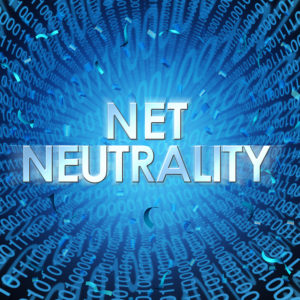Democrats’ Save the Internet Act, which would restore former net neutrality rules, passed the House Subcommittee on Communications and Technology yesterday, which means the bill will now head to a full Energy and Commerce Committee markup and vote before heading to the House floor.
The bill restores the Federal Communications Commission’s (FCC) 2015 Open Internet Order, which uses Title II of the 1934 Communications Act (originally written to regulate the old telephone monopoly) to regulate internet service providers (ISPs), like AT&T, Comcast and Verizon.
Republicans are vehemently against Title II-based net neutrality regulation, calling it too “heavy-handed” and preemptive. Republicans introduced several net neutrality bills prohibiting blocking, throttling and paid prioritization, but Democrats and pro-net neutrality advocates say they aren’t enough to protect a free and open internet because they don’t address all the ways ISPs can abuse consumers.
From the perspective of R Street’s Technology and Innovation Fellow Joe Kane, the “major weakness” of the Save the Internet Act is that it doesn’t really end the net neutrality debate.
“The big virtue of legislation is that it would end the fight, you don’t have to worry abut what the next administration would do,” he told InsideSources. “This bill just kicks it back to the FCC.”
Republicans tried to add several amendments to the bill during yesterday’s markup, but none made it into the final draft. One included a sunset clause, which would nix the net neutrality rules after five years and require the FCC to make a recommendation regarding whether the rules should be permanent.
Of course, Republicans expect the Trump administration’s FCC to recommend nixing the rules permanently, so the move was largely political showboating.
The second proposed amendment deleted the part of the bill that restores the 2015 Open Internet Order and replaces it with a prohibition of blocking, throttling and paid prioritization practices, sets up a formal complaint process so that consumers can report such abuses to the FCC, and classifies the internet as an “information service” to be regulated by the Federal Trade Commission (FTC), not the FCC, except for any blocking, throttling or paid prioritization abuses.
The third requires ISPs to “publicly disclose accurate information regarding the network management practices, performance characteristics, and commercial terms of its broadband internet access services sufficient to enable consumers to make informed choices regarding the purchase and use of such services,” and to make such information easily accessible. The amendment also prohibits blocking, throttling and paid prioritization.
The fourth does the same, but also prevents the FCC from using Title II to crack down on other ISP practices, like zero rating. Zero rating is the term used to describe when a telecom company — like T-Mobile — offers exceptions to a monthly data cap. For example, T-Mobile might not count a customer’s music and video streaming toward his or her monthly data cap. This can be a way for telcos to one-up their competitors with certain deals.
Zero rating can be used against consumers because it 1) it is a form of paid prioritization that many scholars fear is a slippery slope into censorship and 2) it allows landed ISPs to discount their own services to the disadvantage of new entries to the market (i.e., it discourages competition and the free market).
The fifth Republican amendment to the Save the Internet Act prohibits the federal government from setting broadband rates, which Republicans fear Title II-based net neutrality rules would do. Net neutrality advocates, on the other hand, see Title II provisions as a way for government to stop ISPs from charging too-high prices for broadband access.
The debate over Title II-based net neutrality rules boils down to two camps: those who want a comprehensive, Title II-based net neutrality law that addresses real and potential ISP abuses, and those who think a Title II-based net neutrality law would be too preemptive and discourage competition and innovation.
Based on how the last net neutrality hearing went, it seems both camps continue to dig in their heels. At this point, Kane thinks some kind of compromise is “pretty unlikely.”
“The current House bill may pass the House but I don’t think it has a chance in the Senate,” he said. “Democrats know this is good messaging for them. Nobody likes their ISP, so they can say, we’ll protect you from the bad ISP.”

